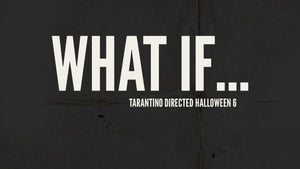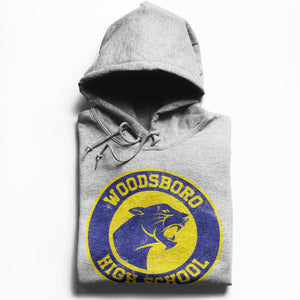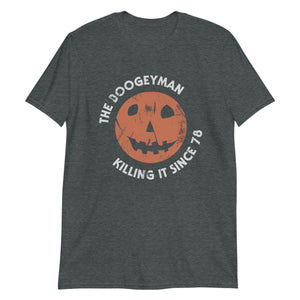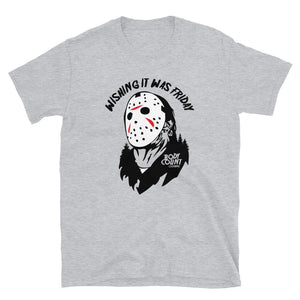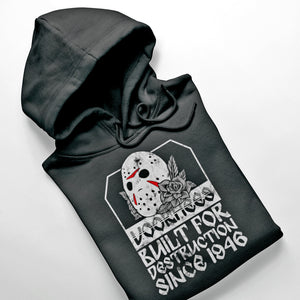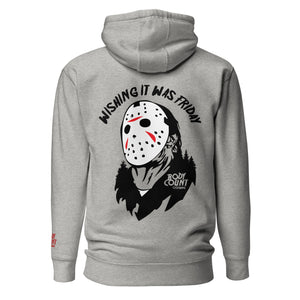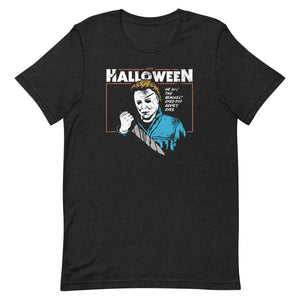Quentin Tarantino's Unseen Influence on the Halloween Franchise
Yes, you read that right...Quentin Tarantino and Michael Myers almost teamed up.
Quentin Tarantino was once considered for writing the sixth movie in the Halloween horror series, a fascinating “what if” scenario that never materialized. However, traces of Tarantino’s creative vision subtly made their way into the most recent reboot of the franchise, specifically in Halloween Ends. Over the years, the Halloween franchise has gone through various adaptations, with different storylines and interpretations. From its inception in 1978 to the upcoming Halloween TV show, the series has evolved, yet remains rooted in the terror Michael Myers first brought to the screen. Notably, apart from Rob Zombie’s reimagined versions, nearly all the sequels and reboots connect back to the original Halloween (1978) and Halloween II (1981).
Throughout its history, the Halloween series has produced 13 films, but none have quite matched the impact of the original. After a series of poorly received sequels in the 1980s and early 1990s, Quentin Tarantino, then an emerging talent in Hollywood, was approached to write the script for Halloween 6. While this project never came to fruition, the movie that was eventually made, Halloween: The Curse of Michael Myers, is often criticized as the weakest entry in the series according to Rotten Tomatoes. Still, some of Tarantino’s ideas lingered in the franchise, even if they were never fully realized.
The ending of Halloween 5: The Revenge of Michael Myers introduced a mysterious figure dressed in black who breaks Michael out of prison, leaving behind a trail of dead police officers. Tarantino’s concept for Halloween 6 was to explore the identity of this shadowy character and his relationship with Michael Myers. His vision involved a road trip across Route 66, where Michael, accompanied by his new partner, would kill anyone unfortunate enough to cross their path. This road trip scenario would have added a unique twist to the series, showing Michael Myers in a new light as a relentless traveler of death.
While this idea never saw the light of day, the notion of Michael Myers working with another character found its way into the plot of Halloween Ends. In this film, a young outcast named Corey Cunningham discovers Michael hiding in the sewers of Haddonfield. Corey becomes corrupted by Michael’s evil, eventually teaming up with him for a series of murders, even going so far as to don Michael’s infamous mask. Although this isn’t a direct adaptation of Tarantino’s road trip plot, the concept of Michael partnering with another character harks back to the original idea.
The Corey-Michael dynamic in Halloween Ends sparked intense debate among fans, many of whom felt it deviated too far from what Michael Myers represents. Introduced in 1978 as "The Shape," Michael Myers was originally portrayed as a mysterious force of pure evil, targeting Laurie Strode seemingly at random. The idea of Michael taking orders from Corey or working alongside him, rather than simply eliminating him, felt inconsistent with the character’s established nature.
Additionally, Corey’s prominent role in the film, including his ability to overpower Michael and take his mask, was seen as controversial by long-time fans. Many found it hard to believe that someone could subdue Michael Myers, and while Michael does eventually kill Corey and reclaim his mask, the damage to the character’s mystique was already done. The concept of passing Michael’s legacy to another figure in Haddonfield could have been more effective had it been developed earlier in the trilogy, allowing for a more gradual buildup. Unfortunately, in Halloween Ends, this plot point felt rushed and disconnected.
While Quentin Tarantino’s version of Halloween 6 never became a reality, his influence can still be felt in the franchise, particularly in the most recent installments. The Halloween series continues to grow and adapt, mixing new ideas with the classic horror elements that fans love. As the franchise looks to the future with new projects like the upcoming TV series, Michael Myers remains a horror icon, forever etched in the landscape of horror cinema. Whether you’re a fan of the new directions or prefer the original films, the Halloween franchise continues to deliver chilling horror news and thrilling moments for its audience.

